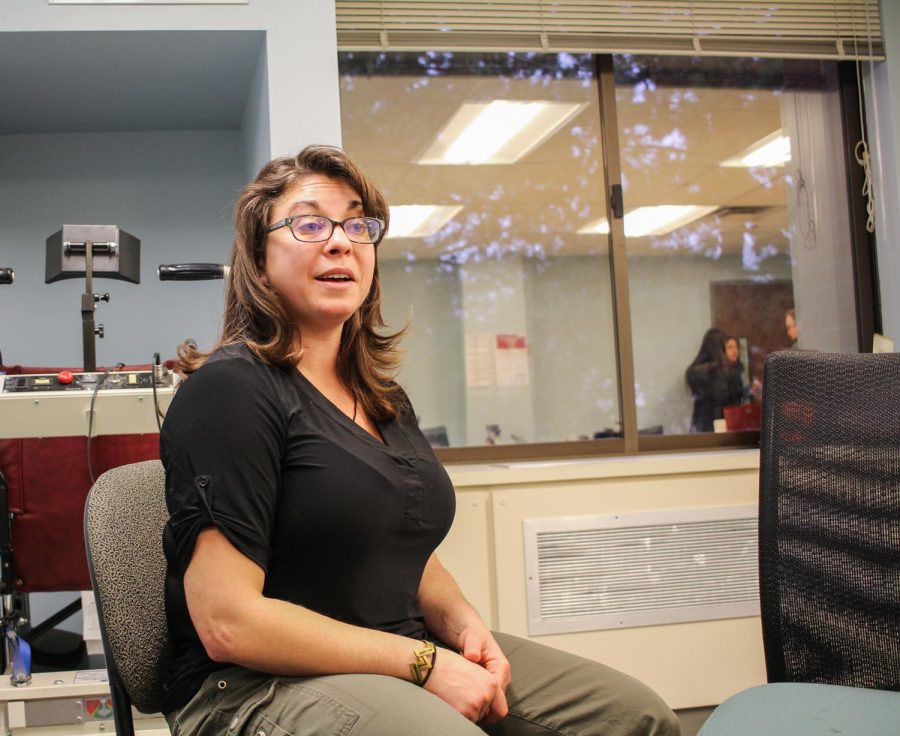Access Center continues accommodations online
Students meet with advisers via Zoom; staff says switch was made with ease
SERENA HOFDAHL | DAILY EVERGREEN FILE
Rochelle Dach, Access Center assistant director, said the WSU office is closed and tutoring is conducted over online Zoom calls.
April 2, 2020
One WSU Access Center employee says the move to online classes removes barriers for some students with disabilities.
Rochelle Dach, Access Center assistant director, said the center’s physical office closed due to the “Stay Home, Stay Healthy,” order, but students can continue to receive accommodations online.
“I think we’re learning a lot about how to utilize technology in a more creative way to serve our students more efficiently,” she said.
Access Center advisers now meet with students through Zoom calls.
Kyle Gonzalez, Access Center assistive technology coordinator, started making plans for the center before WSU made the switch to online so staff could work from home, Dach said.
She said the staff has been able to shift to remote work with no major hiccups.
“It was actually a much longer and more complicated process than we originally thought so it really was awesome that he started that process so early,” Dach said.
Cassondra Yarlott, Access Center alternative testing services coordinator, said the center provided accommodations to WSU Global Campus students before the Pullman campus transitioned so the staff already knew how to advise students online.
“For on-campus classes, those barriers actually get removed in distance learning,” she said.
For example, if a student needs their lectures to be recorded, they will already be recorded when taking an online course.
Yarlott said she has worked with professors, both those who have taught online classes before and those new to the format. She helped them figure out what design is the most universal, specifically for testing.
Some of the most common accommodations include students struggling with taking tests due to a disability, Yarlott said. Students can receive longer time periods for tests, as well as get a break or time to eat a snack while testing.
Advisers are now working with students to see if their current accommodations are relevant and if there need to be additions, Dach said. She has not noticed more students needing accommodations online.
“If one piece of that puzzle changes so dramatically, we’re seeing a lot of students to put different or additional supports in place,” she said.
Dach said transitioning to an online platform has provided means to solve a previous problem.
The access center would speak to incoming freshmen over the phone and it was not as effective as in-person, she said. With Zoom, they are able to meet face-to-face just in different locations.
All WSU students also have another type of help for their classes.
Ricky Thai came to the Academic Success and Career Center looking for employment, but four years later he has continued to be a peer tutor for WSU.
“Throughout this time I realized that tutoring is a great resource,” he said. “I realized that tutoring helped me strengthen my academic skills.”
Tutors have dedicated time to meet with students, usually from 12-9 p.m. It was offered at the ASCC and at residence halls before the campus transitioned online.
Thai now meets with his peers through Zoom to answer questions they have about their homework or general class concepts, he said.
Tutors can help with several topics ranging from chemistry to accounting, Thai said.
Tutors were provided with online training on how to properly use Zoom. He said he meets with about five students a week for tutoring.
“We facilitate the discussion so students can answer the homework question quickly,” Thai said. “At the same time, we provide other encouragement and critical thinking so that the student can apply it in their future learning.”










